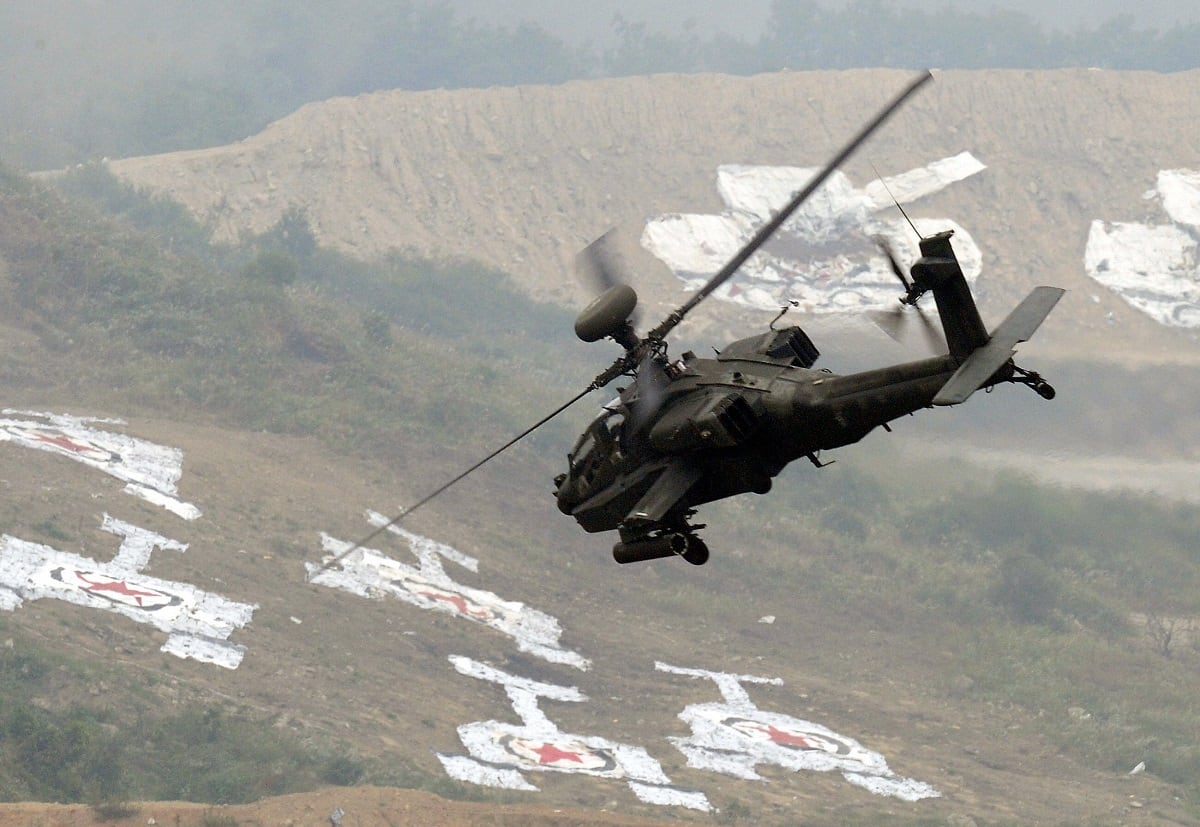Correction: Lt. Gen. Laura Richardson is the acting commanding general of U.S. Army Forces Command.
NASHVILLE, Tenn. — Soldiers bore the brunt of a major problem with the AH-64 Apache attack helicopter that was discovered last year, and which Boeing has been working to fix, the acting commanding general of Army Forces Command said at the Army Aviation Association of America’s annual summit on April 15.
The service decided to stop accepting AH-64 Echo-models from Boeing when it discovered problems with a “safety critical” part — the strap pack nut — which holds the bolts that hold the rotor blades onto the helicopter.
RELATED

The Army was unhappy with the performance of the nuts in severe coastal environments and saw corrosion due to climate and stress during routine safety inspections of the fleet.
The service ordered a redesign of the strap pack nut that would be retrofitted onto all operational AH-64s worldwide.
Noting the strap pack nut issue among other delays, Lt. Gen. Laura Richardson said getting AH-64s back to the force “put the enterprise in a proverbial tailspin, which crash landed on the backs of our soldiers and our units.”
The strap pack nut issue alone has so far required FORSCOM soldiers to invest an extra 6,672 man hours to inspect and retrofit the strap pack nuts, she said. Subsequently, training schedules were disrupted and “readiness has suffered,” Richardson added.
The Army resumed accepting AH-64E helicopters from Boeing at the end of August 2018 and hopes to be finished retrofitting the entire fleet of U.S. government and Foreign Military Sales aircraft by December 2019.
The first units to receive new parts will be those that fly regularly in severe, coastal environments. Brig. Gen. Thomas Todd, the Army aviation program executive officer, estimated that number to be roughly six units in the Army.There are 653 AH-64s currently fielded in the U.S. Army.
Jen Judson is an award-winning journalist covering land warfare for Defense News. She has also worked for Politico and Inside Defense. She holds a Master of Science degree in journalism from Boston University and a Bachelor of Arts degree from Kenyon College.








